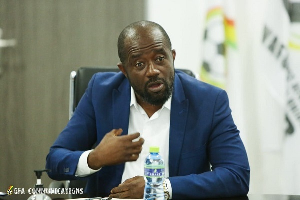In 2020, despite the global pandemic, Africa was aggressively seen to be gearing up for the launch of the Africa Free Trade Agreement (AfCTA).
AfCTA is the largest trade agreement in the world with over 50 African countries who have signed up to participate.
To date;
1.54 out of 55 African countries have signed the agreement .
2.38 countries have complied with their domestic requirements for ratification.
3.36 countries have deposited their instruments of ratification with the Chair of the African Union Commission.
Although the prospects of AfCFTA seems exciting and makes sense, I’ve been a pessimist for three reasons:
1.Lack of Infrastructure
2.Poorly Competitive
3.ECOWAS Challenges
Challenge 1:
In January 2020, I remember Tony Elumelu stating, at the UK Africa Trade & Investment event which took place in the UK, that we are failing the youth when our infrastructure and education is not up to par.
Although Africa is rich in resources, due to the lack of infrastructure it becomes expensive to extract, produce, transport and export our materials to external markets.
In addition to infrastructural challenges i.e. poor road networks, low electricity penetration outside major cities and stability, high cost of utilities etc., we also have a challenge that many African countries do not have robust and aggressive manufacturing industries which can produce at scale and cost-effectively.
In 2017, the African Center for Economic Transformation (ACET) in partnership with Overseas Development Institute (ODI) and the Government of Ethiopia convened the first meeting on ‘Light manufacturing on the continent’ as part of the Pan African Coalition for Transformation (PACT).
Manufacturing, on average, contributes to only 15% of GDP across the continent as most African countries have de-industrialized and have a higher contribution in the service industry (average 58% of GDP).
Despite manufacturing being a plausible way to drive employment for the youth, increase wealth creation and increase export income - not enough African governments are well invested in this opportunity.
Ghana is averaging 11.5% annual GDP contribution from the manufacturing industry. However, aside from one district one factory (1d1f) which has produced 76 factories over the past 5 years, how do we plan to take advantage of AfCTFA?
How is our government mobilizing businesses to be competitive and take advantage of the continental trade agreement? With lack of financing, high electricity costs and operating taxes, is AfCFTA only designed for a few elite who can easily get skin in the game?
Challenge 2:
Challenge 1 seamlessly introduces us to Challenge 2, as Africans, can we compete with the likes of China? China is one of the most industrious countries in the world with 37.8% of its annual GDP being attributed to manufacturing in 2020, and China being the hub for the majority of the world's production.
AfCFTA only makes sense if each African country is getting a better deal by trading intra-Africa. Despite us being brothers and sisters, if an African country is offering a product at 0.05cents per unit but they can get it for 0.003 cents per unit from China after shipping - we are confident that African countries will still be trading with China.
Not only is price a challenge but also quality, capacity and turn around time.
Challenge 3: ECOWAS Challenges
For the past 2 years I have been the Executive Secretary of the Ghana Nigeria Business Council (and there are a lot of lessons Africa can learn from ECOWAS.
It’s important that we understand the full scope of engagement between each African country. The purpose is to ensure that we do not violate the sovereign law of each African country which protects locals and their industries.
We also need to ensure that we demystify ideologies and myths about each other, as Africans. By doing the latter, it will remove any barriers which would hinder our ability to trust and trade with each other.
An interesting observation from fig.1 is that Ghana was one of the first countries to sign up for the agreement in 2018 and Nigeria was one of the last countries in December 2020. Despite Nigeria being the biggest economy in Africa and one of the largest industrial manufacturing countries, their manufacturing only accounts for 13.5% of their annual GDP.
Reasons for their late sign up to AfCFTA are surrounded with many speculations, however with their current trade challenges with Ghana within ECOWAS, it would be interesting to observe how both countries take advantage of AfCFTA.
Conclusion
I am a Pan-Africanist and my heart is always on Africa winning. However it is important to not get swept away with the PR and jazz. We really need to focus on the details to ensure we have the right mechanisms in place to make AfCFTA work.
After BREXIT and the challenges between the USA and China, AfCFTA gives us an opportunity to really invest and build ourselves, whilst showing the world that we don’t need to always rely on external support or trade.
Writing this article seeks to allow people to also consider partnerships, pulling resources together and sharing the pot as opposed to creating micro businesses which will not have the desired impact. AfCFTA is going to require scale, consistency, efficiency and competitive pricing. If we can learn anything from our European or Asian counterparts, it is that there is power in working together.
Press Releases of Tuesday, 9 March 2021
Source: Nadia Takyiwaa-Mensah

















